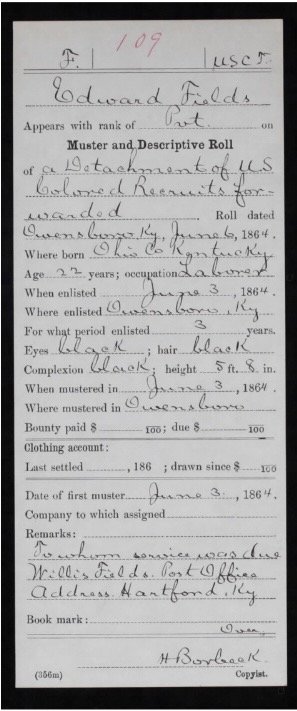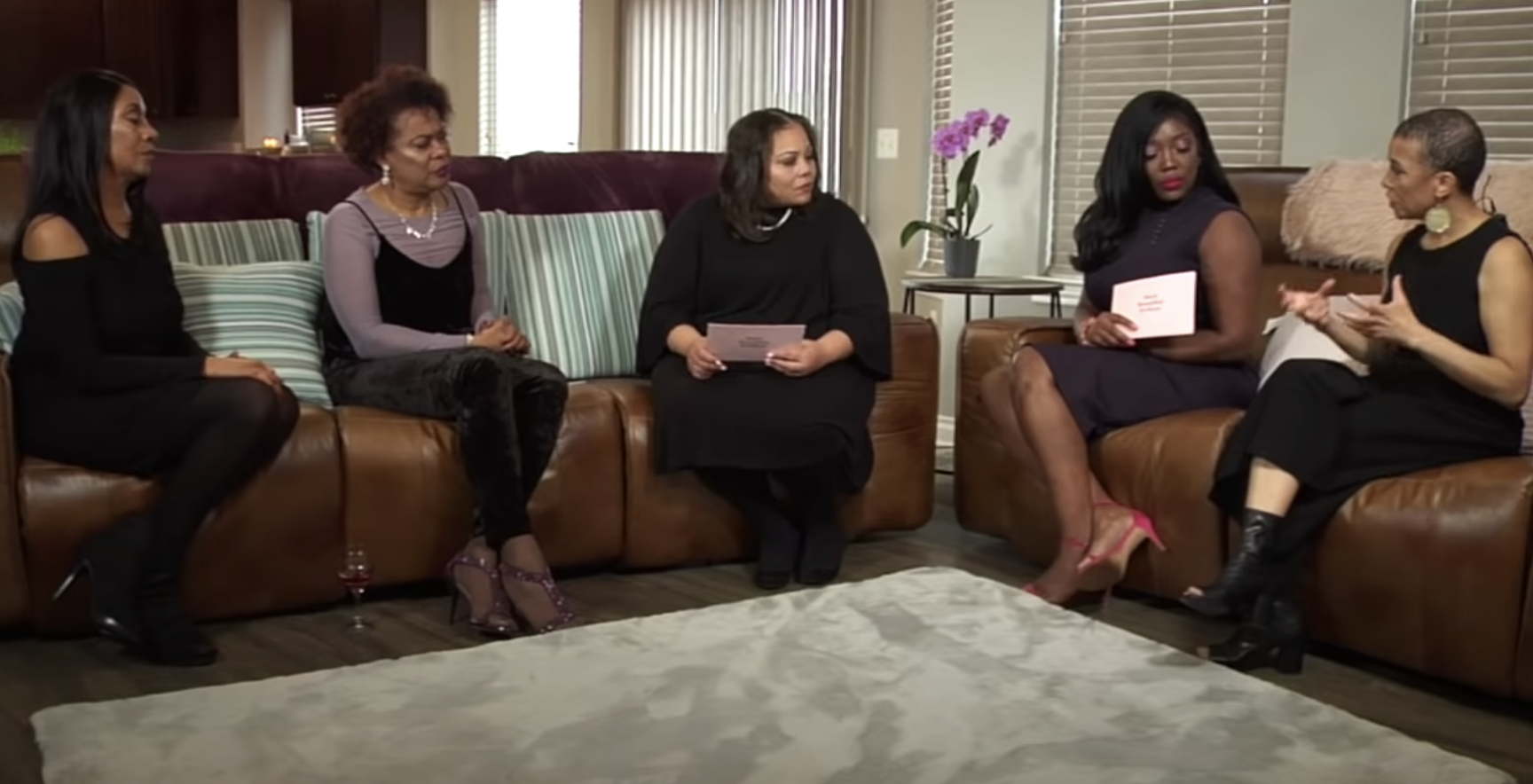As you read about my ancestors and their his-story, you can click on the bolded links for more information.
This year, during my birthday month of August, I am putting the spotlight on my ancestors. If it was not for them I would not be here to celebrate. I believe as we research about our history, we gain revelations for the future. As we share these stories, we open the eyes and hearts of others.
Most of you know I typically focus my gratitude on my Great-Great Grandfather John Fields. He was formerly enslaved and in 2015 I discovered his narratives recorded September 1937 about his life before and after freedom. For this blog, I decided to celebrate him AND his older brother Edward, my great-great uncle. I am learning more and more about the impact of Edward’s his-story on our family. I was recently interviewed by an amazing journalist and Edward’s story was featured in an article about his role in the United States Colored Troops (USTC) and Civil War. Wait until you read all about it here: https://kyusct.org/category/soldier-stories/.
I am titling this post, Fighter of Freedom. I have always shared that my great-great grandfather had the spirit of entrepreneurship. When he was sold and separated from his parents and siblings, he called himself an “independent slave.” When he ran away to freedom and found work, he called himself an “independent worker.” Learning about his “independent mindset” set me free. I realized the limits I put on myself or thought others put on me, were in my mind. This prompted me to finally work full time in and on my own business, and become determined to have it be a success that will impact generations to come. You can learn more about John’s his-story in my blog posts, specifically you can read: His-story can heal, unify and galvanize us.
Recently, I have become super focused on my Great-Great Uncle Edward. I am certain my great-great grandfather wanted the spotlight to shine on him. I see him as someone who was a freedom fighter. Let me give you a little backstory. My Great-Great Grandfather John was one of 11 children that were sold and separated around 1854. John remained in Owensboro (formerly Owensburg), Kentucky and his older brother Edward was put to work somewhere nearby.
“I can’t describe the heartbreak and horror of that separation. I was only six years old and it was the last time I ever saw my mother for longer than one night. Twelve children taken from my mother in one day. Five sisters and two brothers went to Charleston, Virginia, one brother and one sister went to Lexington Ky., one sister went to Hartford, Ky., and one brother and myself stayed in Owensburg, Ky. My mother was later allowed to visit among us children for one week of each year, so she could only remain a short time at each place.” Copy of the Slave Narrative of John W. Fields from Access Genealogy
When I was researching about my great-great grandfather, I realized I had found several allies who were providing me with articles and information about his life in Indiana, where he ran away to and lived until he passed away at 104 years old. It hit me that I didn’t have any connections for research in Kentucky. I reached out to the President and Executive Director of The Reckoning, Dan Gediman, in Louisville, Kentucky. Dan has a podcast and blog, The Reckoning: Facing the Legacy of Slavery in America. He had featured John Fields in a post on the home page. I wrote to tell him I was his great-great granddaughter and wanted to know more about the area in Kentucky where he was enslaved.
It has been so amazing that whenever I reach out to someone related to his-story, I have always been able to build a reciprocal relationship where I share with them and always discover something new. Well, it took some time but Dan eventually emailed me and he connected me to Loretta Williams who is an independent public media journalist, editor and reporter based in the Los Angeles area.
“I want to introduce you to my colleague Loretta Williams, a gifted radio producer, editor, and writer that is working on writing a series of profiles of various United States Colored Troops (USCT) and their family members. She would like to write about John and Edward Fields and since you have done so much terrific research about John, I thought she should connect with you and perhaps even interview you for the piece.”
I was so excited! After a few emails, Loretta and I met over zoom for the interview. We discussed what I knew about John and Edward’s life before being separated from each other and how they both had ran away to join the civil war in 1864. My great-great uncle was the only that one able to get enlisted because my great-great grandfather was too young. In addition to the narratives, recorded by the Federal Writers’ Project 1936-1938, I shared with Loretta the details left out and captured in an article in the Indianapolis Recorder August 1937. This article filled in all the gaps the narrative left out about Edward that John wanted the world to know. We also reviewed the war records that Dan sent proving that Edward had indeed fought in the civil war, and survived. The image you see for this blog post is one of Edward’s military service cards of soldiers who fought in volunteer organizations during the American Civil War.
I am forever grateful to Dan Gediman and Loretta Williams for sharing so much with me about John and Edward. It caused me to really deep dive into research about the USCT and uncover the details of Edward’s time in the army, the exact role he played in the Civil War and how he was able to live through this bloody battle to see Confederate General Robert E. Lee surrender in Appomattox County, Virginia. I plan to share this research and my revelations in a future blog post! It also opened my eyes to why my great-great grandfather was determined to have Edward’s story told. I have added to my dream list, a plan to visit the African American Civil War Memorial in Washington DC. Inscribed on the Wall of Honor are the names of 209,145 soldiers of the USCT 175 regiments who are called, “Fighters of Freedom.” I also hope to find out if Edward was ever married and had children. If there are any of his descendants alive, I desperately want to share his-story with them.
As you read about Edward, I warn you that his-story is very dramatic and unbelievable! With that in mind, I invite you to read with empathy rather than judgement. I also invite you to put yourself in his shoes and combat boots. I’ve found this is the best way to get the most out of diverse, historical stories. After you read the article below by Loretta Williams, you can read more about the story my great-great grandfather wanted the world to know about Edward in my blog post titled: Total Healing: Truth, Trauma, Triggers.
Click here to read Loretta Williams’ piece on Kentucky U.S. Colored Troops Project and the Biographical Profile of Corporal Edward Fields and Brother John Fields.












